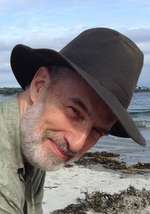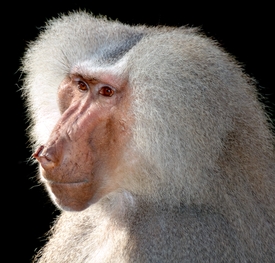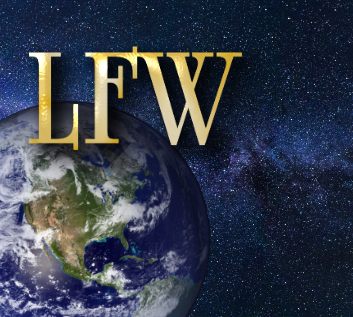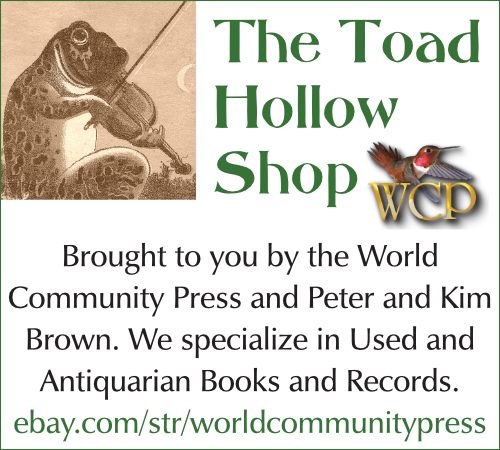The True Identity of Humans May 21, 2017  This essay has been updated and edited since it’s original publication date of August 6, 2008. A very warm and courtly gentleman named Dr. William Strassner once remarked that one shouldn’t fight racism by fighting racism. Instead, he said, we should spend time together with individuals from other races, so that we could all get to know each other better. I’ve long remembered the wisdom of his comments, all those years ago in Hampton, Virginia. Now deceased, he was a very well respected leader in the African-American community. I believe that Reverend Strassner’s solution to racism was based on his understanding of the true identity of humans. He had grown up in the South when it was a terrible time to be black. Yet, having endured a life of racial persecution, he had reached the point where he could look at a white man as a child of God. That’s how he treated me, a wet-behind-the-ears white Yankee transplanted to Virginia. Four decades after leaders like Strassner “marched with Martin,” it seems normal for white and black Americans to work together, to play together, and, now at long last, to marry each other. However, the ugly beast of racism is not dead. It lives on, together with nationalism, classism, religious sectarianism and all the other nasty “isms” that give birth to conflict and separation between human beings. How we view other humans is closely tied to how we view ourselves. Who are we? What is our identity? To me, this question is one of the central questions of life on earth. I believe that the answer goes far beyond opinions and belongs instead to the realm of scientific truth. As much as we can all finally agree that the world is round, I believe that one day we’ll all agree on a clear definition of the true identity of humans. The science that proves this will undoubtedly boggle our minds. Until then, I believe that the proof rests in our hearts.
If we believe that we’re created by God, is our identity then tied to our particular religion or sect? Do we look at other people as infidels to be scorned? When my lovely bride, Kimmy Sophia, was just a young snip of a seven-year-old girl, she would introduce herself with this question: “Hi! My name is Kim. Are you Catholic or Protestant?” She asked this question because she was an Irish Catholic and because she was seven. She is now a delightfully sympathetic earth mother respectful of all religions, which is very lucky for me, since I’m a Protestant with English and Scottish blood. There are so many flavors of “isms,” and so many varieties of bigotry that separate us from other human beings, that fighting them all would be a never-ending battle. Sometimes separation from others isn’t even bigotry but simply arrogance or selfishness. Separation from others seems to be the norm, but should it be? Some of us may have experienced what it feels like to look at another person through the filter of an “ism.” Our experience may have included a feeling of superiority. We may have looked at a person and thought, “You’re okay, but once you learn my truth, you’ll be better.” In some cases, we may have felt contempt or hatred. If we were lucky enough to not experience such feelings, we still need to ask ourselves about our general attitude and viewpoint toward people. It is here that our sense of identity is of paramount importance. Even though we can’t yet scientifically prove that God exists, and that God created human beings as personifications of God’s heart of love, I believe that humankind will at some point in the future universally agree that these points are true. I think that truth, as understood by the heart, will unite with science to demonstrate these realities. The true identity of humans will be regarded as commonsense knowledge that goes far beyond religious doctrine or denominationalism. Blaise Pascal, the seventeenth-century French philosopher, wrote in the posthumously published volume Pensées that “it is the heart which experiences God, and not the reason.” He stated:
Spiritually logical factors that support this view of human identity include the attributes of human nature that are common to all races and nationalities: such things as parental love, unselfish service, the appreciation of beauty, and the reality of mystical and psychic experiences. Perhaps scientists will also build machines that respond to human thought and emotion. I believe that someone will one day invent a television receiver that will be able to receive transmissions from channels being broadcast from the spiritual world. Can you imagine clicking your remote and watching a talk show with Abraham Lincoln, Booker T. Washington, and Moses, all looking young and fit? Why should this be far-fetched? If our invisible spiritual thought that moves our physical bodies is a form of energy, then why can’t we build a machine to convert the energy of spiritual television signals to physical signals? When we have this type of television channel, how could anyone quarrel about the eternal and spiritual nature of human beings? One simple way of expressing the true identity of humans is to say:
Accepting the idea that we are all God’s children and that God’s primary motivation is to love each human being as a unique and priceless child has a momentous impact on our viewpoint toward everyone whom we meet. As we walk down the street, or go shopping, or sit in a restaurant, we examine the faces of the people around us and see them not as strangers but as God’s children, and thus our brothers and sisters. As we harmonize with the reality that God lives inside our own hearts and wants to pour His/Her sacred love through us to all human beings, we become energized with the desire to express God’s transcendent love to everyone. Feeling this way, we can resonate with the words of the nineteenth-century French mystic Léon Marie Bloy when he wrote, “Human personality and individuality written and signed by God on each human countenance—in so extraordinary a way, sometimes, on the face of a great man—is something altogether sacred, something for the Resurrection, for eternal Life, for the beatific Union.” We will no longer see a person as an “Untouchable,” or as any one of the many segments of the world’s societies that we might previously have scorned or ignored. Instead, we see each person as our equal: as our brother or sister who also has God dwelling in them. Of course, we may still struggle to love, to give, and to make harmony with personalities different from our own. We may fall short of the new standards that we’re trying to adopt and live up to. Yet our path will become clear; our goal and vision of what we should be like as a human, and what other humans are, will guide us forward with enthusiasm and hope. The French author and Second World War pilot Antoine de Saint-Exupéry wrote in his book Flight to Arras:
Although de Saint-Exupéry’s words about “the right to despair” might sound harsh to some, I prefer to use his words as an inspiration to think more deeply about who we are in relation to the indwelling God. Our identity as humans is centrally intertwined with God’s heart of love for each person. Eventually we will become acutely aware of our feelings of suffocation when we are separated from the atmosphere of God’s love. The more we explore the invisible world of love, the more excited we will become. It will become entirely natural for us to regard each person as God’s honored child, our dear brother or sister, even if they are unconscious of their own identity. The joy of embarking on the path of love is immense and grows with every step that we take along the way. In the thirteenth century a German poet and mystic named Mechthild of Magdeburg wrote seven volumes of mystical visions. She stated that God ordered the volumes to be titled “Light of my divinity, flowing into all hearts that live without guile.” Her work is commonly called The Flowing Light of the Godhead and is available in English. It is a lovely, extraordinary book. To me, her words express the essence of what it means to be human:
We are made of love, and it is love that stimulates our true humanity to flower. It is love that cuts through all the “isms” and all the barriers that separate us from other human beings. Beyond any external definition of our identity, we are men and women of heart who were created as conduits and furnaces of God’s transcendent love. It is love that imbues every human with the nobility of a God who resides with us always, wrapped within our thoughts and feelings and the entire fabric of our being. It is our daily task to strengthen our awareness of that Presence and acknowledge, once and for all, our true identity as humans. Baboon photo credit: “Papio hamadryas (aka)” by André Karwath aka Aka - Own work. Licensed under Creative Commons Attribution-Share Alike 2.5 via Wikimedia Commons - https://commons.wikimedia.org/wiki/File:Papio_hamadryas_(aka).jpg #mediaviewer/File:Papio_hamadryas_(aka).jpg Peter Falkenberg Brown is passionate about writing, publishing, public speaking and film. He hopes that someday he can live up to one of his favorite mottos: “Expressing God’s kind and compassionate love in all directions, every second of every day, creates an infinitely expanding sphere of heart.”
(Comments are moderated and must be approved.) “The Epiphany of Zebediah Clump”
Watch our first film right here. |





 Are we biological infestations descended from squirmy, squiggly, muddy things? Are we randomly evolved superior animals, proud that we’re now smarter than our Granduncle Franky the Baboon?
Are we biological infestations descended from squirmy, squiggly, muddy things? Are we randomly evolved superior animals, proud that we’re now smarter than our Granduncle Franky the Baboon?




